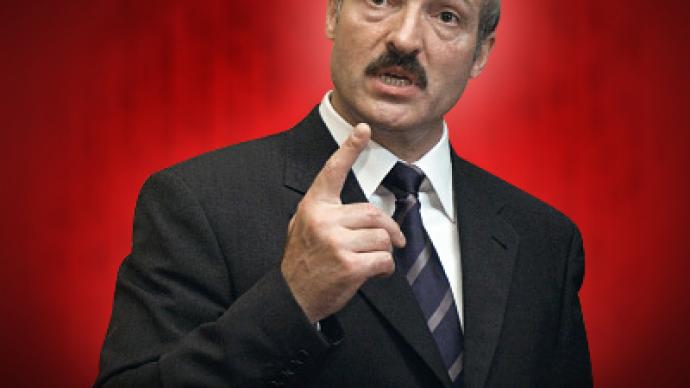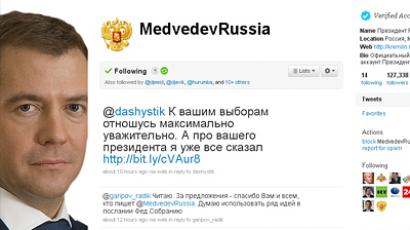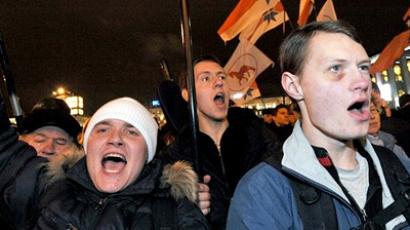Reign of “Europe's last dictator” not about to end at 16 years

There has been widespread international criticism of a violent police crackdown on opposition protests in Belarus, following Sunday's presidential election. Many protestors were beaten, and more than 600 were arrested, including several candidates.
The incumbent leader Aleksandr Lukashenko won a fourth term with almost 80 per cent of the vote.The highest-ranking opposition competitor received less than three per cent of the votes. Six per cent were cast for the “against all” ballot option.With the turnout exceeding 90 per cent, the Central Election Commission has pronounced the election valid.It is the fourth consecutive victory for Lukashenko as president, after 16 years in power.“From the bottom of my heart I would like to thank my supporters and congratulate them on our victory,” Aleksandr Lukashenko said. “And as for my opponents, I have to inform you on the saddest of occasions for you – that you will now have to deal with the acting president for at least another five years.”
Thousands protest in Belarusian capital
Opposition supporters, journalists and a number of foreign ambassadors were at the thousands-strong demonstration outside the government building in the center of the capital, Minsk. Despite the efforts of riot police to disperse the unsanctioned rally, Oktyabrskaya Square was quickly flooded by people.Later, the demonstrators managed to break the cordon, reaching the main government building. They smashed windows and attempted to break in, demanding that a second round of the election be held.Riot police reacted immediately.The crackdown resulted in over 600 people detained and dozens injured. RT's camera crew was among those hit with police batons as officers failed to distinguish between protesters, passers-by and members of the media. At least six of the nine presidential candidates have also been arrested, many of them seemingly disappearing without trace.Belarusian authorities reported that several police officers were also injured in the clashes.Presidential candidate Vladimir Neklyaev was taken to hospital with a head wound.“I was with my husband in the hospital when several men entered the room,” Vladimir Neklyaev’s wife Olga said. “They held me down. I was trying to free myself, I was screaming, but no-one came to help. They pulled him off the bed. He could not walk, so they wrapped him in a blanket, dragged him out of the room and locked me inside.” OSCE monitors concluded that the counting of ballots in the Belarusian presidential election did not meet international norms.“This election failed to give Belarus the new start it needed,” said Tony Lloyd, head of the OSCE Election Observation Mission. “The counting process lacked transparency. Frankly the people of Belarus deserved better.”EU and US officials have also condemned the violence – but President Aleksandr Lukashenko simply told everyone to mind their own business.“Sometimes the OSCE forgets that it came to observe the election, not to control it. When it comes to that, it is not for them to evaluate,” Aleksandr Lukashenko said."We are not going to crawl towards any international recognition," he stressed earlier. "There is no need to set conditions for us all the time, we will sort everything out ourselves."
Aleksandr Lukashenko calls opposition thoughtless
Europe's last dictator, as he has been dubbed by some Western media, did receive some praise from observers. They have all agreed this election was much more democratic than the previous one, in 2006. But while this election saw the Belarusian opposition receiving an unusual degree of freedom to campaign, many opposition activists still believed Lukashenko would win the election.Some skeptics say that granting more freedom to the opposition is just a ploy by President Lukashenko to receive financing from the European Union: billions of euros have been promised to Belarus, should they conduct a fair and democratic election, along with signs of democratic changes in the country.During a recent visit to Moscow, Lukashenko said Minsk might see some political change, but no change in power, indicating his determination to keep hold of the presidential post.Kirill Koktysh, a political analyst from Russia's State University of International Relations, said the opposition may well protest against the results of the election, but none of the opposition candidates offered solutions to problems that were any different than those suggested by Lukashenko.“The problem is that the opposition produced no alternative program on how to deal with the economic problems, how to deal with the current economic crisis. Actually the program of the opposition candidates can be explained as, ‘I will be able to do what Lukashenko’s doing’, but without Lukashenko, that’s not very convincing,” he said.
Meanwhile Fyodor Lukyanov, editor-in-chief of Russia in Global Affairs magazine thinks that the opposition is unskilled and weak politically, and there is no chance for them to win without outside support. “I don’t think that opposition will be able to organize something like they did yesterday, because the reaction from authorities was so brutal that now it’s probably they think there is a test for them – the authorities think there is a test for them – to prevent any protest for [a] long time ahead. So I think that more-or-less that what happened – the outside reaction seems to be, if not positive, [then] quite indifferent. Without outside support, I don’t think [the] opposition has any chance,” he says.
Lukashenko also voted, thanking his rivals for increasing his chances of winning this election."Frankly speaking, the opposition also played into my hands.I thank them very, very much for their thoughtless speeches and thoughtless canvassing," he said on Sunday, talking to international monitors at a polling station in Minsk, Interfax news agency reports.
Who supports Lukashenko?
The lowest voter turnout has been registered in Minsk, where the opposition’s support is quite strong. Political expert Anton Bespalov told RT he believes the success of Aleksandr Lukashenko is due to the support from voters, such as elderly people and the working class. “Those who don’t want to vote for him simply don’t go to polls,” he said. “It’s [a] Belarus-type election, where the Western standards of fairness and freedom are not quite applicable, but it shows that Lukashenko is still supported by the majority of [the] population.”













